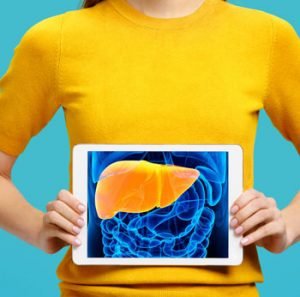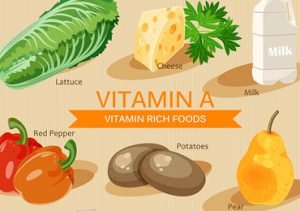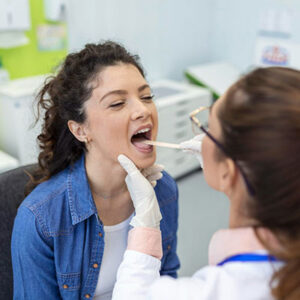Cirrhosis is characterized as an extreme stage of liver damage. It is caused due to a broad range of liver ailments such as severe alcoholism and hepatitis. Whenever damage occurs in the liver, it tries to heal itself. Every time a repair is done, scar tissue is formed. When more and more scar tissues are formed in the liver, then it leads to liver cirrhosis.
In this condition, it becomes hard for the liver to function efficiently. Generally, the damage caused due to cirrhosis is irreversible, but if the condition is diagnosed early, then it can even limit the damage. In this article, we are going to share with you the causes, diet tips, and medical treatment to treat liver cirrhosis.
What is the Function of Liver?
The liver is one of the integral organs in the body. It is the second-largest organ and a critical gland in the body. It functions without any break. It is responsible to carry out the following functions in the body:
- detoxification,
- metabolism of carbohydrates,
- synthesis of protein,
- secretion of biochemicals needed for digestion,
- forming reserves of glycogen
- production of digestive juices like bile
- secretion of hormone and
- decomposition of RBC in the body
What is Liver Cirrhosis?
It is a disease that progresses at a very slow pace. It causes wounded tissues to substitute healthy tissues of the liver. Due to the increase in the number of scar tissues, it can eventually stop the operation of the liver. Cirrhosis is the result of continuing damage to the liver cells for a prolonged period. This condition can block the flow of blood to the liver.
What Are The Signs Of Liver Cirrhosis?
Here is an informative video that explains the Liver Cirrhosis in detail –
The signs of cirrhosis are not clearly visible until the damage is extensive. These signs include:
- Fatigue
- Easily bruising
- Loss of hunger
- Swelling in feet, ankles, and legs
- Unexplained weight loss
- Nausea
- Itchy skin
- Jaundice (yellow discoloration in eyes and skin)
- Fluid deposition in the abdomen
- Palms becoming red
- Loss of periods in women
- Loss of sex drive, and enlargement of breasts in men
- Unclarity,
- Slurred speech,
- Drowsiness
What Causes Liver Cirrhosis?
Liver Cirrhosis is caused due to the following diseases and health conditions:
- Severe alcohol abuse
- Acute viral hepatitis B, C, and D
- Non-alcoholic Fatty Liver Ailment
- Deposition of Iron in the body
- Cystic fibrosis
- Accumulation of copper in the liver
- Poor designed or destruction of bile ducts
- Deficiency of Alpha-1 antitrypsin
- Glycogen storage disease
- Genetic digestive disorder
- Autoimmune hepatitis
- Hardening of the bile ducts
- Infection, like brucellosis, or syphilis
- Medications that include isoniazid, or methotrexate
- Consumption of toxic metals
- Obstruction of the bile ducts due to cancer of the pancreas or bile duct
What Are The Risk Factors Associated With Liver Cirrhosis?
Here are a few factors that increase the chances of developing the condition:
- Excessive consumption of alcohol increases your chances of cirrhosis.
- If you are obese or overweight, you can develop non-alcoholic fatty liver that, in turn, will contribute to liver cirrhosis
- Non-alcoholic steatohepatitis.
- Suffering from viral hepatitis
How Is Liver Cirrhosis Diagnosed?
If you show signs of liver cirrhosis, then you should perform a liver biopsy. It is an ideal way to detect an early stage of the disease cirrhosis. Your doctor may ask you to perform a combination of routine check-ups, laboratory blood tests, and imaging tests to confirm a diagnosis.
1. Blood Tests
There are certain blood tests that help you check for symptoms of liver malfunction. These tests check to find out the presence of specific enzymes and high levels of bilirubin in the body. These things indicate liver damage.
Your doctor will prescribe you blood tests that evaluate the functioning of kidneys in the body. These tests check the level of creatinine in the body. Next, he will do screening for the hepatitis viruses to check whether or not you are impacted by hepatitis.
He will also check the international normalized ratio to determine the clotting ability of the blood. By doing these tests, your doctor will arrive at the exact cause of the cirrhosis. He may also learn about the severity of the disease.
2. Imaging tests
Once the disease is confirmed, a few advanced level tests are conducted to find out more about the ailment. He may recommend magnetic resonance elastography. This non-invasive imaging test finds out the stiffening and hardening of the liver. Other forms of imaging tests include MRI, ultrasound, and CT tests.
3. Biopsy
Your doctor might prescribe you a Biopsy test (a tissue sample test) to find out the extent, cause, and severity of liver damage. If you already have liver cirrhosis, then you would need to perform regular diagnostic tests to evaluate the signs of complications or progression linked to the ailment. Non-invasive tests are widely used to monitor the state and progression of the disease.
Treatment Of Liver Cirrhosis
For the effective treatment of cirrhosis, it is important to know the reason and extent of liver damage. The main objective of the treatment is to slow down the rate of development of scar tissue in the liver. It will help treat or prevent symptoms of cirrhosis. In severe stages of cirrhosis, you will even need to get hospitalized.
If you are in the initial stages of cirrhosis, there are greater chances to reduce liver damage by treating the cause of the disease. The treatment options include:
- Alcohol is toxic to the liver. It is the main cause of cirrhosis. So, if the disease is caused due to your alcohol addiction, then the first thing to do is treat alcohol dependency. Either completely stop or reduce your excessive alcohol use. Your doctor would recommend an alcohol addiction treatment program.
- If you have non-alcoholic fatty liver disease, then it may even contribute to liver cirrhosis. So, by losing body weight and controlling blood glucose levels, you can lessen liver damage.
- Medications related to hepatitis B or C can even help in the treatment of cirrhosis. In addition to it, your doctor may also prescribe you a few medicines to control the reasons and signs of liver cirrhosis. It will help prevent the progression of the disease. These medicines would also help treat the common complaints of itching, pain, and fatigue in this condition. As liver cirrhosis can lead to malnutrition and weakening of bones, so you may also be asked to take nutritional supplements.
Treatment To Manage Complications Associated With Cirrhosis
Cirrhosis of the liver can put you at risk of developing several complications. Let us see what are these complications and how are they treated.
1. Deposition of excess fluid in the body
A combination of medication and a low-sodium diet will help to prevent the accumulation of fluid in the body. It will help to control swelling and ascites.
2. Portal hypertension
Poor liver functioning and build-up of pressure in the portal vein can lead to deposition of fluid in the belly. To control increased blood pressure in the veins and prevent acute bleeding, your doctor will prescribe specific blood pressure control medications like diuretics.
It will help expel excess fluid accumulation from the body. He may also perform an upper endoscopy periodically to find whether there are any enlarged veins present in the stomach that could lead to bleeding.
3. Infections
You may get antibiotics to stop the build-up of bacteria from developing in the body and causing an infection. Your doctor may recommend vaccinations to treat pneumonia, hepatitis, and influenza.
4. Liver cancer
Liver cirrhosis can make you more susceptible to liver cancer. It is required to get regular blood tests and an ultrasound every six months to a year to look for cancer. The possible treatments for liver cancer are surgery, chemotherapy, and radiation.
5. Hepatic encephalopathy
When a liver gets heavily scarred, it loses its ability to eliminate toxins from the body. These toxins can accumulate in the blood and damage the brain. This can cause mental clarity and memory. Your doctor will prescribe you medicines to reduce toxins in the blood.
6. Liver Transplant
Cirrhosis can lead to irreversible damage to the liver. This condition is called liver failure. You may need to get a liver transplant to replace your damaged liver with a healthy one.
How To Stay Healthy With Cirrhosis?
To reduce the advancement of liver cirrhosis and its complications, you need a combination of a healthy weight and a good diet. Here are a few dietary and lifestyle modifications that you should make to keep your liver healthy.
1. Consume a nutritious and liver-friendly diet
Liver cirrhosis can eliminate nutrients from the body. This can make your muscles weak. Eat plenty of healthy foods such as fruits, lean protein sources like fish/poultry, oysters, shellfish, and vegetables.
2. Adopt a Low-sodium diet
Excess salt has the ability to increase the accumulation of fluid in the body. It can cause the body to retain fluids, and worsen swelling in the legs and abdomen. Replacing salts with herbal seasoning can help in this condition.
3. Get vaccinated
Cirrhosis can weaken the immune system. It can make you prone to infections. So, you should protect yourself by getting periodic vaccination against the flu, hepatitis A and B, and pneumonia.
4. Be careful when consuming any medicine
This health condition would make it difficult for the liver to process medicines and remove them. Ask the doctor prior to consuming any OTC drug.
Effective Home Remedies To Treat Cirrhosis Naturally
Any harm to the liver will directly impact metabolic functions in the body. However, do not get intimidated as you can repair the damage and lessen the signs by eating some nutritious foods in your diet. So, let us see a list of liver-friendly foods that will protect your liver’s health.
1. Turmeric
Turmeric contains a powerful compound called curcumin that makes it a potent antioxidant. It can repair the free radicals induced damage. It can help the working of the liver. Add a pinch of turmeric to a cup of warm milk and drink daily.
2. Milk Thistle
Milk thistle has silymarin that shows remarkable detoxification and properties. They help detoxify the liver and combat the signs of cirrhosis. Add a tsp of milk thistle tea to one cup of hot water. Steep for five minutes. Strain the mixture and drink it. Drink it daily twice a day.
3. Papaya Seeds
Papaya seeds have a special enzyme called papain that safeguards the organs from oxidative damage due to free radicals. It contains various nutrients that aid in healing cirrhosis of the liver. Extract the juice from papaya seeds and add some drops of lemon juice to it. Mix this mixture in a glass of water and drink it. Drink it twice daily to reap optimum benefits.
4. Ginger
Ginger exhibits powerful hypolipidemic and antioxidant effects. It aids in flushing toxins and fat out of the liver. Regular consumption of ginger can even help restore liver cells to a healthy state. Drink ginger tea three to four times a day to get the benefits.
5. Vitamin C
Vitamin C is a powerful antioxidant that is beneficial to heal liver cirrhosis. The deficiency of this vitamin is seen to contribute to a liver ailment. It works by expelling fat and toxins from the liver. It prevents the build-up of fat in the liver that helps treat liver cirrhosis. Take vitamin C supplements of 500 to 5000 mg strength once daily.
Other important liver-friendly foods that you must incorporate into your diet are Green Tea, Coconut Oil, Carrot seed oil, and Flaxseeds.
Questions About Liver Cirhosis
1. What is the ideal way to treat cirrhosis of the liver?
The best way to treat the problem is to prevent it from happening in the first place. However, people who are at the advanced stage of the disease would need to perform a liver transplant.
2. How do I prevent liver cirrhosis?
You can reduce the chances of liver cirrhosis by taking the following steps to take care of the liver:
- Reduce the chances of hepatitis. Avoid unprotected sex and reusing used needles can put you at risk of hepatitis B and C. Check with the doctor about vaccinations to treat hepatitis.
- Ask your doctor about the reasons for liver cirrhosis and how to lower the risk.
- Avoid consumption of alcohol.
- Maintain a healthy weight. This is important because excess body fat can lead to liver damage. If you are obese, you should consult a dietician for a weight-loss strategy.
- Reduce the chances of hepatitis infections by performing essential precautions.
- Follow a well-balanced and healthy diet.
- Reduce the consumption of fried and fatty foods.
3. Why diet is significant in the treatment of liver cirrhosis?
Eating the right diet enhances the immune system and helps prevent infections. It will help control blood glucose and blood pressure levels in the body. This will increase the possibility of developing cardiovascular disease and diabetes mellitus in the body.
4. What foods to eat and avoid to treat liver cirrhosis?
Diet plays a significant role when it comes to liver health. You should eat a healthy plant-based diet. It should be composed of vegetables and fruits. Choose lean sources of protein and whole grains. Lower the consumption of oily, and fried foods.
Here is the list of foods that can harm your liver:
- Salt
- Sugar
- Alcohol
- Fried or fatty foods
Below are the foods that you should eat:
- Oats
- Lean meat
- Whole grains
- Fresh fruits
- Vegetables
- Eggs
- Fish
- Milk
- Foods rich in beta-carotene like carrots
5. What is the last stage of liver cirrhosis?
Gastrointestinal bleeding is the last stage of liver cirrhosis. This is an internal condition. Once the condition reaches this stage, it becomes incurable. By making appropriate modifications in the lifestyle, lowering alcohol and salt intake you can recover from the initial stages of the disease in a year. However, when the problem becomes severe then there are no chances to recover from the condition completely
6. How does alcohol impact the liver?
Alcohol causes oxidative stress that, in turn, damages the liver. Therefore, people who suffer from liver cirrhosis should refrain from alcohol completely. If you are habitual of drinking, then you can limit the consumption. Less than two drinks daily are considered safe. If you drink more than this limit, then you are putting your liver at a risk.
Conclusion
The liver has a significant role to play in the body. The organ processes whatever you eat. Excess consumption of anything can put your liver at a risk. It will exert more pressure on the liver that when continued for a long time, can lead to permanent damage. So, moderation is the key. However healthy the food is, you should practice portion control. The above diet tips and treatment will help reverse this life-threatening condition to a considerable extent.



















You have mentioned all the important information for treatment of liver desease.
Blog seems interesting but can you tell me is there any side effect for this treatment.